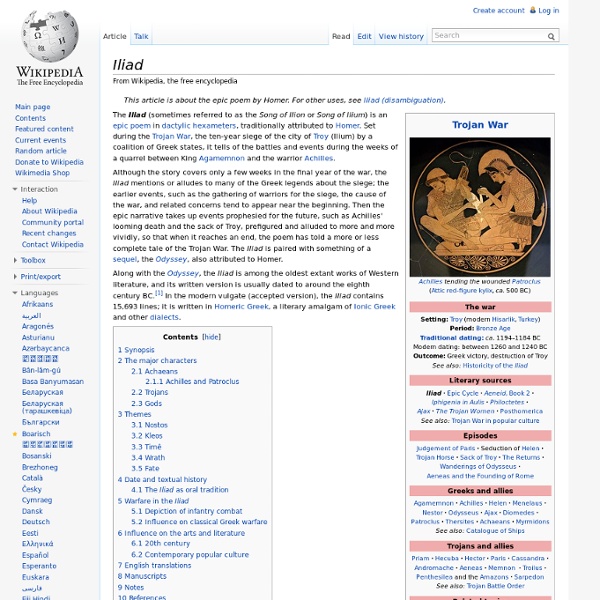Iliad

Section 1. Critique of Pure Reason
Immanuel Kant (1787) Source: Critique of Pure Reason (1787). Norman Kemp Smith version from Chinese University of Hong Kong, with text of Kant's second edition extracted. I. THERE can be no doubt that all our knowledge begins with experience. But though all our knowledge begins with experience, it does not follow that it all arises out of experience. The expression 'a priori' does not, however, indicate with sufficient precision the full meaning of our question. In what follows, therefore, we shall understand by a priori knowledge, not knowledge independent of this or that experience, but knowledge absolutely independent of all experience. II. What we here require is a criterion by which to distinguish with certainty between pure and empirical knowledge. Now it is easy to show that there actually are in human knowledge judgments which are necessary and in the strictest sense universal, and which are therefore pure a priori judgments. III. IV. V. 1.
Hecuba
Parents[edit] According to Suetonius in The Twelve Caesars, the emperor Tiberius pestered scholars with obscure questions about ancient mythology, with one of his favorites being "Who was Hecuba's mother?"[10] Hecuba in the Iliad[edit] The death of Hector on a Roman sarcophagus, c. 200 AD Hecuba appears six times in the Iliad. Hecuba in other classical works[edit] A third story says that when she was given to Odysseus as a slave, she snarled and cursed at him, so the gods turned her into a dog, allowing her to escape. In another tradition, Hecuba went mad upon seeing the corpses of her children Polydorus and Polyxena. —Inferno XXX: 13–20 Hecuba's children with Priam[edit] Hecuba in popular culture[edit] Hecuba is frequently referenced in classical literature, and in many medieval, Renaissance, and modern works. Hecuba is mentioned in: The name Hecuba or Hecubah appears occasionally: Notes[edit] References[edit] Primary sources[edit] Secondary sources[edit] Tsotakou-Karveli. External links[edit]
Related:
Related:



